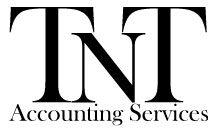As we move into 2025, it’s crucial for business owners in Canada to stay updated on the latest tax regulations and strategies to optimize their tax filings. Whether you’re a small business owner or managing a larger enterprise, understanding the nuances of the tax system can help you save money and avoid potential issues. Here are some essential business tax tips for 2025 to keep in mind.
Key Changes and Updates
The Canadian tax landscape is constantly evolving, and 2025 brings several important changes that businesses need to be aware of:
- Corporate Tax Rates: The federal corporate tax rates have been adjusted for inflation. Make sure to review the latest rates to understand how they apply to your business income.
- Small Business Deduction: The small business deduction limit has been increased, allowing more businesses to benefit from the lower tax rate on their first $500,000 of active business income.
Maximizing Deductions and Credits
To minimize your tax liability, consider taking advantage of the following deductions and credits:
- Capital Cost Allowance (CCA): Ensure you’re claiming the appropriate CCA for your business assets. This allows you to deduct the cost of depreciable property over time.
- Scientific Research and Experimental Development (SR&ED) Tax Credit: If your business is involved in research and development, you may be eligible for the SR&ED tax credit. This can provide significant savings on your tax bill.
- Home Office Expenses: If you run your business from home, you may be eligible to claim home office expenses. Keep detailed records of your expenses throughout the year to maximize your deduction.
Efficient Record-Keeping
Good record-keeping is essential for accurate tax filings and can help you avoid potential audits. Here are some tips for maintaining efficient records:
- Use Accounting Software: Invest in reliable accounting software to keep track of your income, expenses, and receipts. This will make it easier to prepare your tax return and ensure accuracy.
- Keep Receipts and Invoices: Maintain organized records of all business-related receipts and invoices. This will help you substantiate your deductions and credits if needed.
- Track Mileage: If you use your vehicle for business purposes, keep a detailed log of your mileage. This can be claimed as a business expense and can provide valuable deductions.
Planning for the Future
Effective tax planning involves looking ahead and making strategic decisions to optimize your tax situation. Consider the following strategies:
- Incorporate Your Business: If you’re operating as a sole proprietor, consider incorporating your business. This can provide tax advantages and protect your personal assets.
- Income Splitting: If you have family members involved in your business, consider income splitting to reduce your overall tax liability. This involves paying salaries or dividends to family members in lower tax brackets.
- Tax-Deferred Savings Plans: Take advantage of tax-deferred savings plans such as the Registered Retirement Savings Plan (RRSP) and the Tax-Free Savings Account (TFSA) to save for the future while reducing your taxable income.
Seeking Professional Help
Navigating the complexities of the tax system can be challenging, and seeking professional help can provide valuable insights and ensure compliance. Consider working with a tax professional or accountant who specializes in business taxes to optimize your tax strategy.
Conclusion
Staying informed and proactive about your business taxes can lead to significant savings and a smoother tax season. By understanding the latest changes, maximizing deductions, and planning for the future, you can optimize your tax situation and focus on growing your business. Happy filing!
Feel free to reach out if you have any specific questions or need further assistance with your 2025 business taxes in Canada! 😊

